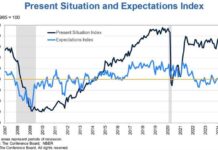The Global Backlash Against High Immigration
In recent years, wealthy nations around the world have seen a growing revolt against high levels of immigration. Moderates are calling for limits on immigration numbers, while radicals are advocating for mass deportations of immigrants. This backlash raises important questions about the economic consequences of such actions.
Migrants are facing increasing hostility in many countries. In the United States, over half of Americans now support the idea of deporting all immigrants living in the country illegally back to their home countries, a significant increase from just a third in 2016. Australia has also seen a sharp decline in support for immigration, with only 10% of Australians expressing a desire for more immigration.
In the United Kingdom, Sir Keir Starmer, the new centre-left prime minister, has called for reduced reliance on migration by focusing on training more UK workers. Similarly, Anthony Albanese, Australia’s slightly longer-serving centre-left prime minister, has criticized his country’s migration system, stating that it “wasn’t working properly” and has proposed cutting net migration in half. These sentiments are echoed by populist leaders like Donald Trump in the United States, who has pledged mass deportations if re-elected.
The Economic Impact of Anti-Immigration Policies
The pushback against high immigration levels raises concerns about the potential economic consequences of restricting immigration. Immigrants have long played a crucial role in bolstering economies by filling labor shortages, starting businesses, and contributing to innovation. Limiting immigration could lead to labor shortages in key industries, slowing economic growth and increasing costs for businesses.
Furthermore, mass deportations could have severe repercussions on the economy. Removing a large portion of the workforce would disrupt businesses and industries that rely heavily on immigrant labor. This could result in decreased productivity, higher unemployment rates, and a decline in overall economic output.
The Humanitarian Crisis of Mass Deportations
Beyond the economic implications, the prospect of mass deportations raises serious humanitarian concerns. For many immigrants, deportation means being forced to leave behind their families, homes, and communities. It can also expose them to dangerous conditions in their home countries, including violence, persecution, and poverty.
Moreover, mass deportations can create a climate of fear and uncertainty among immigrant communities, leading to social unrest and division within society. The psychological toll of living under constant threat of deportation can have long-lasting effects on individuals and families, contributing to mental health issues and social isolation.
In conclusion, the growing backlash against high immigration levels in wealthy nations highlights the complex interplay between economic, humanitarian, and social factors. As countries grapple with how to address immigration concerns, it is crucial to consider the diverse impacts of proposed policies on both individuals and society as a whole. Balancing the economic benefits of immigration with the humanitarian needs of migrants is essential in shaping a more inclusive and sustainable future for all.

















